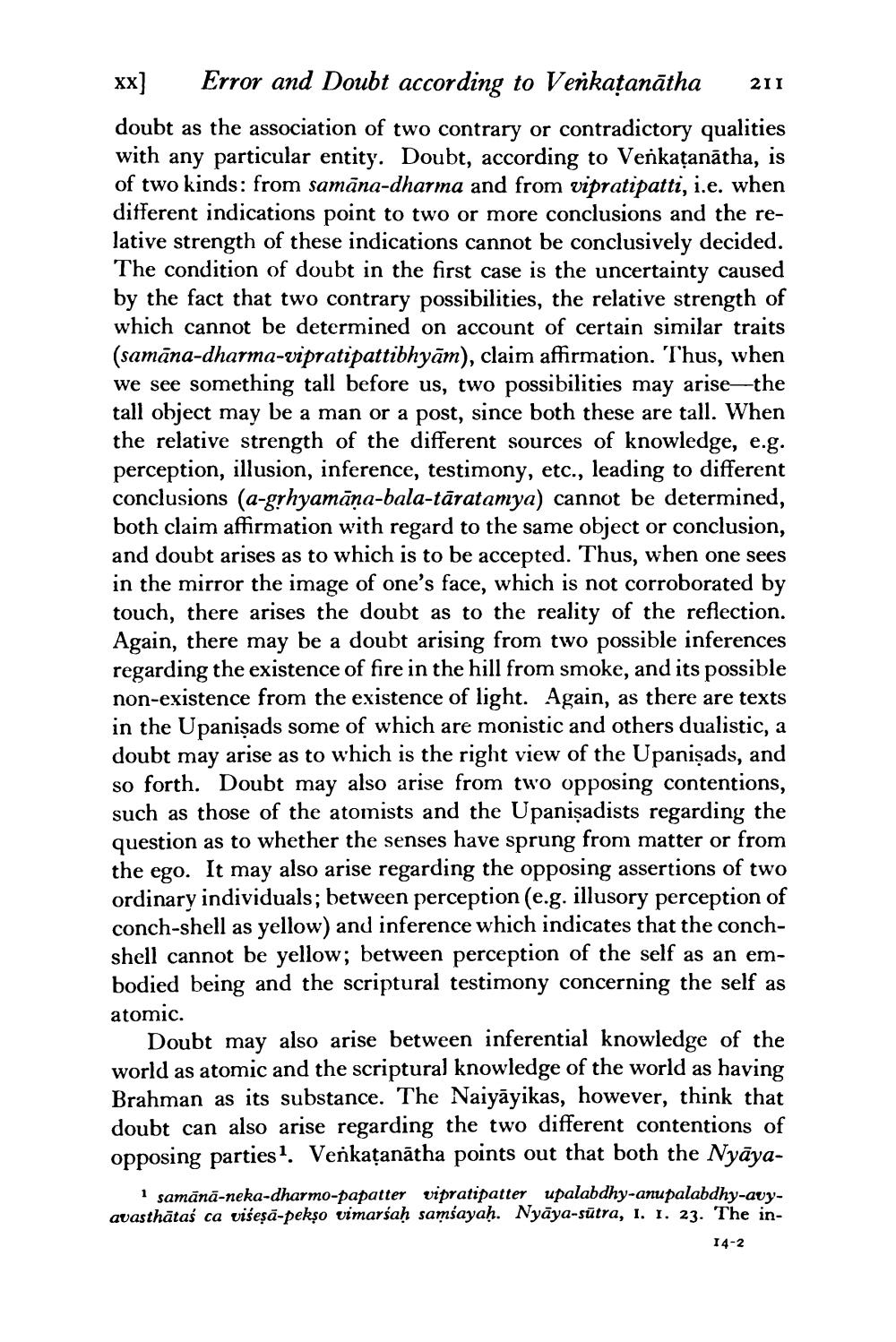________________
xx] Error and Doubt according to Venkațanātha 211 doubt as the association of two contrary or contradictory qualities with any particular entity. Doubt, according to Venkațanātha, is of two kinds: from samāna-dharma and from vipratipatti, i.e. when different indications point to two or more conclusions and the relative strength of these indications cannot be conclusively decided. The condition of doubt in the first case is the uncertainty caused by the fact that two contrary possibilities, the relative strength of which cannot be determined on account of certain similar traits (samāna-dharma-vipratipattibhyām), claim affirmation. Thus, when we see something tall before us, two possibilities may arise—the tall object may be a man or a post, since both these are tall. When the relative strength of the different sources of knowledge, e.g. perception, illusion, inference, testimony, etc., leading to different conclusions (a-grhyamāņa-bala-tāratamya) cannot be determined, both claim affirmation with regard to the same object or conclusion, and doubt arises as to which is to be accepted. Thus, when one sees in the mirror the image of one's face, which is not corroborated by touch, there arises the doubt as to the reality of the reflection. Again, there may be a doubt arising from two possible inferences regarding the existence of fire in the hill from smoke, and its possible non-existence from the existence of light. Again, as there are texts in the Upanişads some of which are monistic and others dualistic, a doubt may arise as to which is the right view of the Upanişads, and so forth. Doubt may also arise from two opposing contentions, such as those of the atomists and the Upanişadists regarding the question as to whether the senses have sprung from matter or from the ego. It may also arise regarding the opposing assertions of two ordinary individuals; between perception (e.g. illusory perception of conch-shell as yellow) and inference which indicates that the conchshell cannot be yellow; between perception of the self as an embodied being and the scriptural testimony concerning the self as atomic.
Doubt may also arise between inferential knowledge of the world as atomic and the scriptural knowledge of the world as having Brahman as its substance. The Naiyāyikas, however, think that doubt can also arise regarding the two different contentions of opposing parties. Verkațanātha points out that both the Nyāya
1 samānā-neka-dharmo-papatter vipratipatter upalabdhy-anupalabdhy-auyavasthātaś ca višeşā-pekso vimarśaḥ samsayah. Nyāya-sūtra, I. I. 23. The in
14-2




